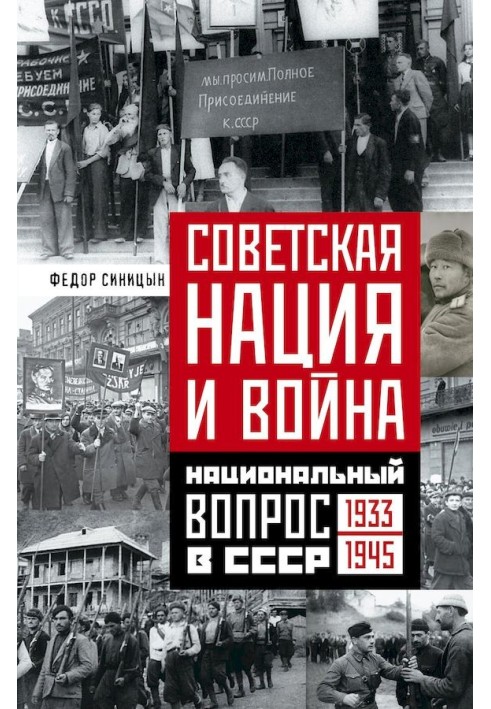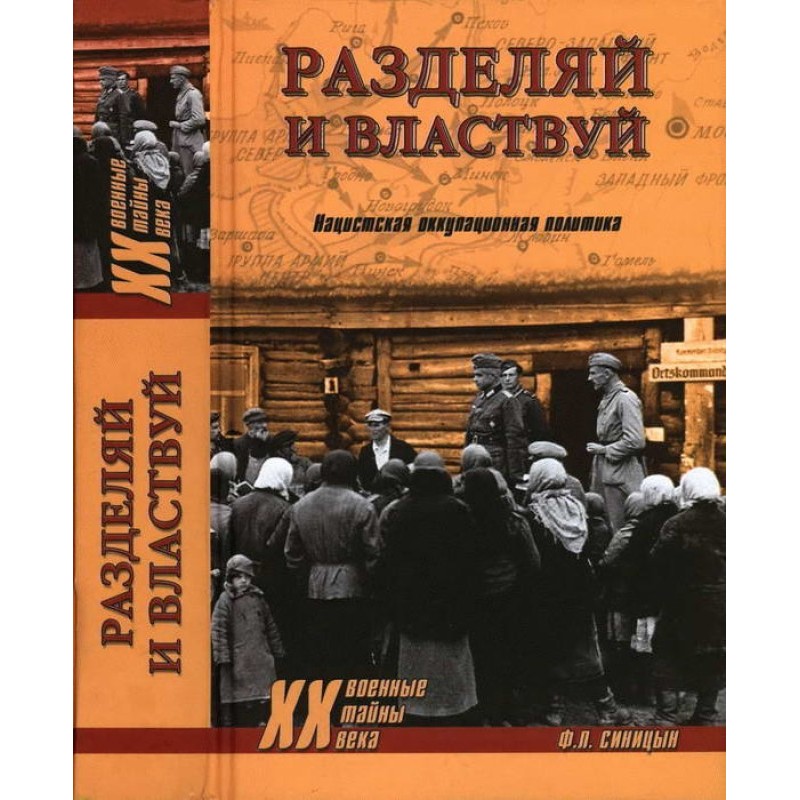The Soviet nation and war. The national question in the USSR, 1933–1945
 Instant download
Instant download
after payment (24/7)
 Wide range of formats
Wide range of formats
(for all gadgets)
 Full book
Full book
(including for Apple and Android)
In the 1930s. In the Soviet Union, the process of creating a political nation was launched on the basis of the Russian people, their history, language, culture and ideology of “Soviet patriotism.” The unity of the peoples of the USSR was due to objective reality - the failure of the concept of “world revolution”, as well as the danger of a new big war, which became obvious after A. Hitler came to power in Germany in 1933. Taking these factors into account, J. V. Stalin was forced to take a course to build the Soviet Union as a state in the traditional sense of the word. Great Patriotic War 1941–1945 became not only one of the most tragic periods of our history, but also a test of the strength of the new Soviet policy based on national patriotic values. Extensive documentary material shows all the main aspects of the national policy of the Soviet state in the 1930s–1940s: the formation of the concept “Soviet patriotism” and the Soviet political nation in the pre-war period, the implementation of Soviet policy in the limitrophe zone in the interwar period, the national question during the Great Patriotic War, the fight against anti-Soviet bandit insurgency, the foreign policy aspect of national policy (Slavic and Jewish factors, attitude towards the Germans and Japanese ), the national factor in foreign aggression against the USSR, the negative aspects of Soviet national policy (deportation of peoples) and, finally, the results of the implementation of Soviet policy in the pre-war and war periods of our history.
Data sheet
- Name of the Author
- Федор Синицын Леонидович
- Language
- Russian
Reviews
Глибоке дослідження складних аспектів радянської національної політики
Книга "Радянська нація та війна" є вражаючим дослідженням, яке охоплює широкий спектр тем, пов'язаних з національним питанням у Радянському Союзі в період з 1933 по 1945 роки. Автор майстерно аналізує, як політична нація формувалася на основі російського народу та його культурних цінностей, а також як зовнішні загрози, такі як прихід Гітлера до влади, вплинули на цю політику. Книга не лише розкриває історичні факти, але й пропонує глибокий аналіз наслідків радянської національної політики, включаючи депортації народів та їх вплив на суспільство. Вона також підкреслює, як Велика Вітчизняна війна стала випробуванням для радянського патріотизму і національної єдності. Ця книга стане корисним джерелом для всіх, хто цікавиться історією СРСР, національними питаннями та соціально-політичними процесами того часу. Рекомендую всім, хто хоче глибше зрозуміти складну природу радянської нації та її виклики в умовах війни.













